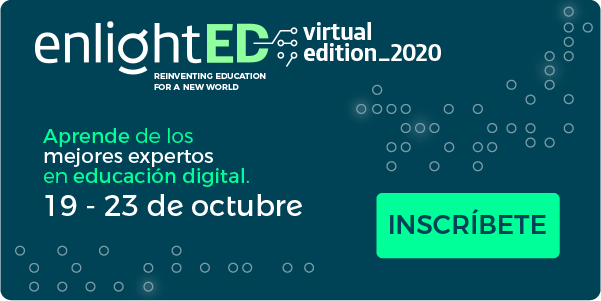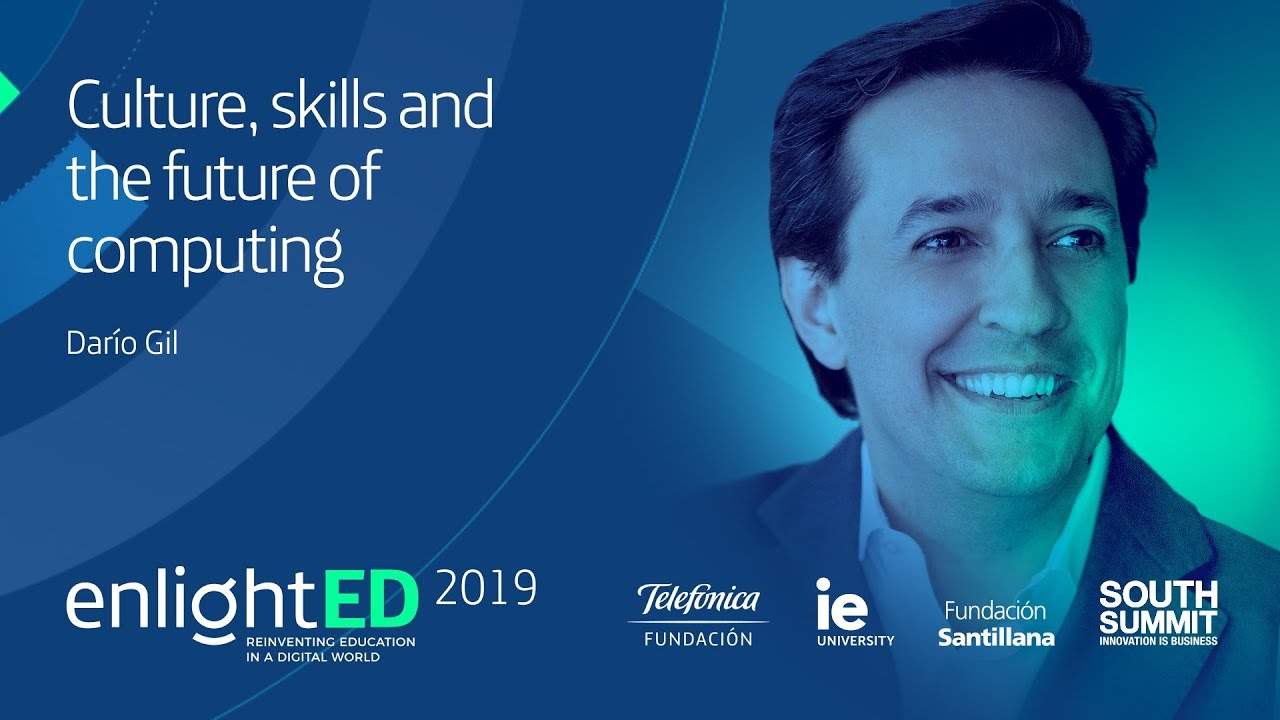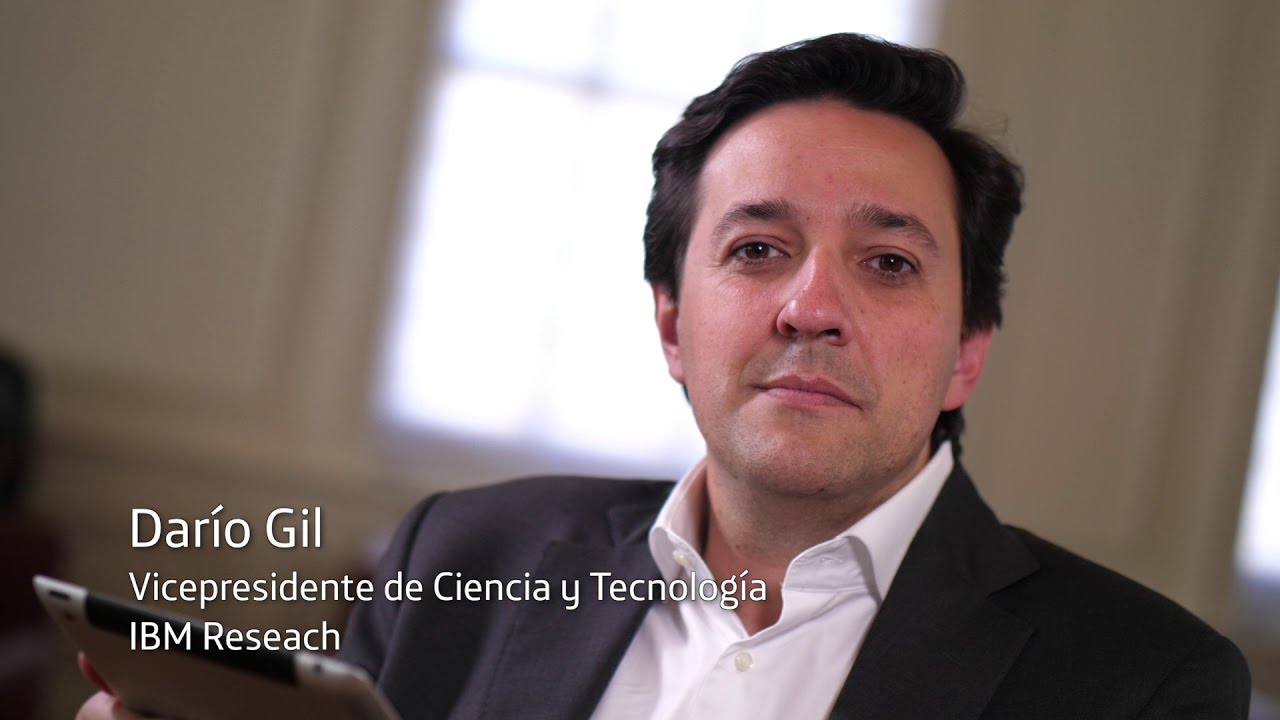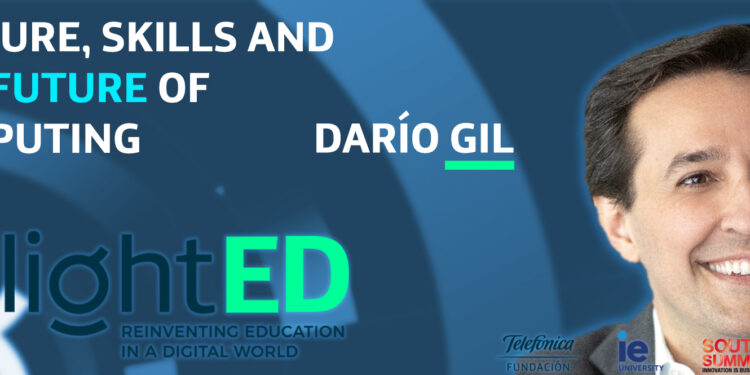In what aspects does artificial intelligence benefit education? IBM research director Darío Gil gives us the keys.
Educational innovation is one of society’s responses to the great challenges we face. From the future of computing in our education to how artificial intelligence influences education. Two topics that IBM’s director of research, Darío Gil, knows very closely, who gives us the keys to understand where we are and where we are going.
Gil, with a degree in electrical engineering and a PhD in nanostructures at MIT, attended EnlightED 2019, the international meeting of education, innovation and EdTech, where he spoke about the future of computing. Throughout this article we tell you what has been his work and what is his thought.

Faster computers
Last year, IBM’s director of research presented in Las Vegas the first quantum computer universal for scientific, business and commercial use, Q System One. In addition, IBM and the CSIC signed an agreement, that same year, to promote quantum computing in Spain, through the cloud platform ‘IBM Q’.
But what is quantum computing? It is a technology that allows increase processing capacity current, through patterns and algorithms of complicated resolution in record time. That is, tasks that computers, right now, can’t solve or take a long time to solve, a quantum computer does it quickly.
This advance is key, not only for the ability to solve impossible problems, but also for the progress of society through educational innovation. In this way, this technology can be applied in different sectors, from chemical companies, pharmaceutical companies to medicine.

Educational innovation: symbiosis between people and ICT
In this line, during the Tech & Society cycle of Aspen Institute Spain and Fundación Telefónica 2017, Darío Gil declared himself a firm defender of technology as a tool to grow people as professionals, managing to improve our quality of life and decision making.
In other words, a world where technologies are the protagonists is a reality, but the human factor remains equally important. It is therefore essential to collaboration between people and technology. As Darío explains, the key is that these systems take care of solving aspects that we cannot solve.

One of the latest examples has come with the 5G revolution, where various applications focused on making people’s lives easier have landed. From the Internet of Things (IoT), remote surgery, autonomous cars, cloud computing and even the deactivation of explosives, among others.
Educational innovation and artificial intelligence
But what is in store for us in the field of education? Well, artificial intelligence is one of the applications with the most potential in recent years, present in various sectors. Being, according to Dario Gil, the area of education where there is greater development.
In this way, this system offers the possibility of more personalized training. How? Achieving that these systems know how each person learns best, that is, that they have “the ability to customize education” specifies the director of research of IBM .
Thus, artificial intelligence, together with neuroscience, are key in the teaching of the future. A training aimed at teachers and students to interact and support themselves in the use of ICT to achieve greater immersion in knowledge, a better learning process and, in addition, achieve capacity building, which so far, have been in the background.
The 3rd edition of EnlightED lands
To respond to all these challenges, the third edition of EnlightED 2020, the international meeting on education, innovation and EdTech, will be held from 19 to 23 October. On this occasion, the forum will revolve around the reflection on the challenges that Covid-19 has posed to education and labor to our societies.

Header illustration by Gonzalo Chavarri.








